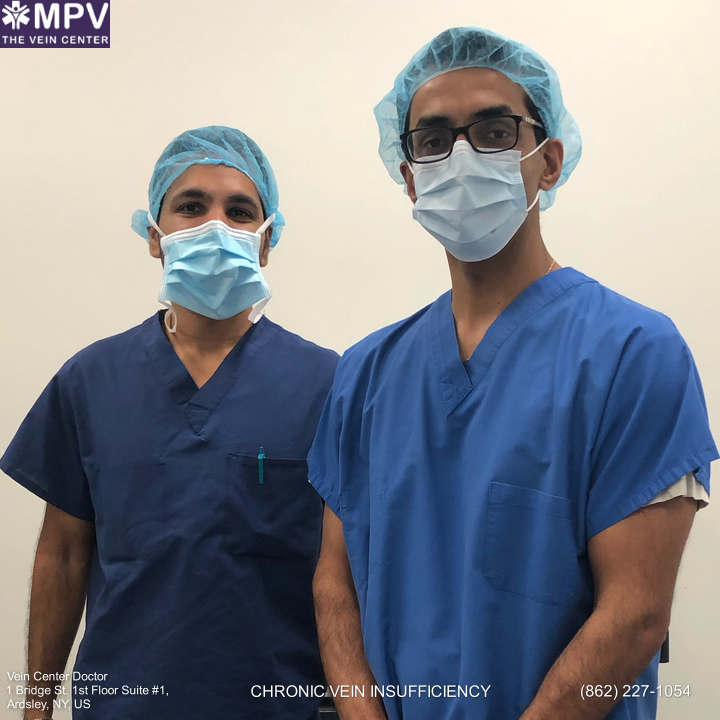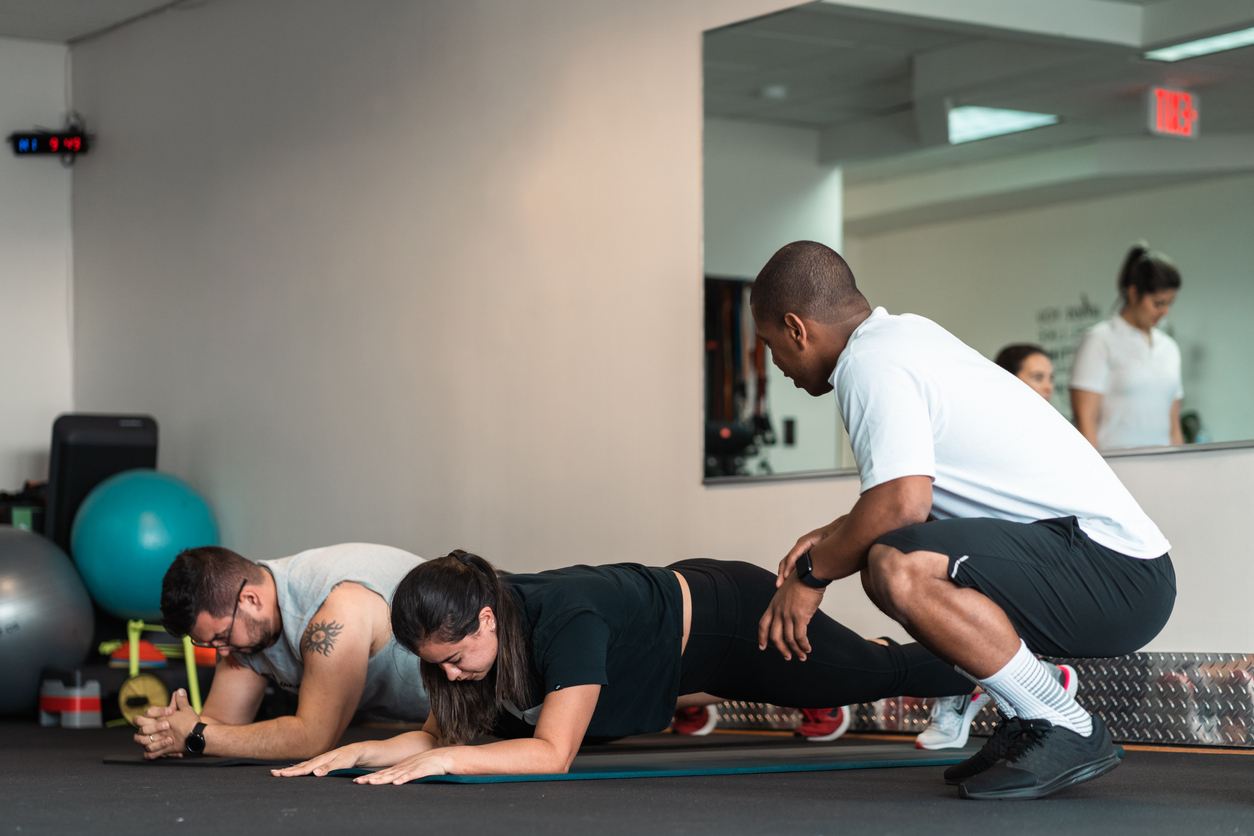Chronic venous insufficiency (CVI) is a medical condition where blood pools in a patient’s leg veins as it fails to flow back to the heart due to faulty venous valves or walls. This condition involves leg swelling, brown-colored skin, leg pain, and sometimes, the appearance of varicose veins and spider veins. Lack of exercise and prolonged standing or sitting can cause this condition, but a lifestyle change isn’t simple for some patients because of their jobs.
So what careers are safe for patients with chronic venous insufficiency? Patients with CVI will highly benefit from careers involving physical activity, such as becoming an athlete, firefighter, lifeguard, gym trainer, and any other jobs without prolonged sitting or standing. If your career has high risks of developing CVI, you can still make several adjustments to reduce those chances, such as taking sitting or standing breaks and increasing physical activity.
Careers That are Safe for Patients with Chronic Venous Insufficiency
Chronic venous insufficiency is caused by a damaged valve, making it difficult for the blood flow to return to the heart. This damaged valve may be caused by blood clots in the deep veins.
Reduced mobility and physical activity and prolonged periods of time standing or sitting may also be a big contributor to the risks of developing chronic venous insufficiency. It maintains the high blood pressure in the legs that weaken and damage the veins over time.
Because of this effect, careers with physical activity that don’t require you to sit or stand for a long time will reduce your risks of having chronic venous insufficiency. These types of jobs help promote better blood flow and circulation and do not add pressure to your blood vessels. Here are some of these jobs:
- athlete
- firefighter
- military personnel
- lifeguard
- gym trainer
- dance teacher
- construction worker
- tour guide
- yoga instructor
Many other careers will be safe for your chronic venous insufficiency – as long as it doesn’t require you to sit and stand all day and allows you to move around from time to time, it should be fine.
Careers With High Risks of Chronic Venous Insufficiency
Many patients with chronic venous insufficiency have desk jobs or careers that require them to stand all day. As a result, they have a high risk of developing the condition. These careers are usually those with sedentary jobs, such as internet marketers, office workers, full-time mothers, computer programmers, and journalists.
These also require you to stand all day, like food service workers, retail workers, teachers, medical workers, and customer service workers. Many other careers like these might offer high chances of developing the condition.
1) Internet Marketers
Most of the things we need today may be accessed easily online, making digital marketing one of the in-demand careers today. This job requires sitting at a computer and staring at its screen all day. This lifestyle offers a high risk of developing chronic venous insufficiency, especially if you have a family history of vascular conditions.
2) Food Service Workers
Foodservice workers also find themselves standing all day: manning the cash register, waiting tables, greeting customers, cleaning the tables and dishes, and preparing food. With these tough tasks, they may also have a heightened risk of developing varicose veins and chronic venous insufficiency.
3) Retail Workers
Retail workers are required to stand for a long period of time and ensure customers they’re readily available to offer assistance. Because of this, they also have a heightened risk of chronic venous insufficiency, obesity, arthritis, back problems, and varicose veins.
4) Office Workers
Most careers today are desk jobs, making chronic venous insufficiency or, at least, the appearance of varicose veins more common. Most of the tasks of office workers require them to sit in front of a computer for hours. This gives them a heightened risk of problems with blood circulation, blood clots, varicose veins, and even obesity.
5) Teachers
Educators also have risk of developing chronic venous insufficiency because they stand most of the time when they teach. Those teaching young kids in a classroom stand most of the time to connect and engage with them. Even those who teach college students stand in front of the kids at a podium.
6) Medical Workers
Medical workers must be on their feet always as they look after patients, perform surgeries, and man the ER. Aside from these, the flooring of most hospitals, clinics, and other medical facilities is hard, making them more susceptible to varicose veins, severe swelling of the legs, and spider veins, among others.
7) Customer Service Workers
Some customer service workers sit at a desk all day or stand at counters to be available in case a customer needs help. Prolonged sitting or standing contributes to great risks of having chronic venous insufficiency.
8) Journalists
Like most desk jobs mentioned, journalists or writers spend most of their time hunched over their writing. This sedentary lifestyle gives them a high risk of developing chronic vein insufficiency.
9) Full-Time Mothers
Being a full-time mom isn’t just fun and games – they might find themselves standing and lifting babies or their kids, cleaning up the house, cooking, and more. Those tasks can also contribute to the risks of developing varicose veins and chronic venous insufficiency.
10) Computer Programmers
Like with internet marketers, everything today can be done with a computer–thanks to our computer programmers. Their job requires them to sit at their desks, hunched over their computers for an extended period of time. Aside from the appearance of varicose veins and risks of cardiovascular diseases, this may also increase the possibilities of back problems and obesity.
Why These Jobs Have Risks of Chronic Venous Insufficiency

These careers have high risks of chronic venous insufficiency due to the nature of sitting or standing up for hours on end. These jobs highly affect your veins. In return, their symptoms or effects may impact not only your career but also your daily living.
How These Jobs Affect Your Veins
Patients with chronic venous insufficiency have damaged vein valves in the legs causing deoxygenated blood to pool in the blood vessel, instead of going to its normal direction of blood flow toward the heart. Our feet’ muscles squeeze our veins when we move around to aid the blood flow upwards, with vein valves keeping them from flowing back. With problematic vein valves, the blood leaks backward, pooling in the leg veins, as it maintains pressure as our muscles contract. This vascular disease is caused primarily by damaged vein valves.
Age, lack of exercise, and prolonged standing or sitting offer high risks of vein valve damage. These factors greatly contribute to vein valves and walls weakening over time, making it harder to maintain a regular blood flow. The blood collecting in the leg veins also maintains its high blood pressure, resulting in chronic venous insufficiency.
Those with a medical history of deep vein thrombosis (DVT), a vascular disease involving blood clots in the leg’s larger vein, can also develop chronic venous insufficiency. Because of this, CVI is sometimes called post-thrombotic syndrome or an effect of previous blood clots. Patients with a health history of vascular malformations and pelvic tumors also have a risk of developing chronic venous insufficiency.
How Chronic Venous Insufficiency Affects Your Career
While your career may offer risks of this venous disease, its effects may also make it difficult for you to do some normal activities, including doing your job. Here are some of the effects or symptoms of chronic venous insufficiency:
- swelling
- cramps or muscle spasms
- pain when walking
- tight feeling in the calves
- restless legs syndrome
- skin discoloration
- leg ulcers
- varicose veins
- spider veins
Once you’ve experienced any of these, consult a health care professional immediately. They might give you the prescribed treatment for your condition, such as the following:
- vein stripping
- medicines
- endovenous laser ablation radiofrequency ablation
- sclerotherapy
- surgical treatment
Consult your doctor as well about the precautions you need to take to reduce the risks of your condition.
How to Avoid Chronic Venous Insufficiency While Working
It’s not easy to simply drop your career. The good thing is you may still do routines to maintain a healthy blood flow even if your job offers risks of having CVI. Activities that promote healthy veins include exercising, keeping a healthy diet, elevating your legs, wearing compression stockings, and avoiding other things contributing to your risk factors.
1) Exercise Regularly
Exercise promotes healthy blood circulation due to muscle contractions that aid the veins. It also helps you keep a healthy body weight, which drastically reduces your risks of having CVI. Even with a busy career, you can devote at least 30 minutes of exercise. Stretching will also help.
2) Elevate Your Legs
At the end of a long, tiring day, elevate your legs to the level above your heart to allow gravity to aid your blood flowing back to it. Doing this will help reduce the pain and swelling of your legs. If your career requires sitting or standing for hours, ensure taking sitting or standing breaks in between to aid the flow of blood and prevent it from pooling in your leg veins.
3) Wear Compression Stockings
Some may find compression stockings uncomfortable, but it does wonders for those with CVI or who would want to prevent this condition. It reverses the symptoms of the disease and may even resolve it.
4) Maintain A Proper Diet
Maintaining a healthy diet helps avoid obesity and lethargy. You should also avoid salty foods as they cause water retention, constricting the flow of blood. It also helps to stay hydrated and take food supplements that promote cardiovascular health.
5) Don’t Wear High Heels Too Often
While high heels may look flattering, they also increase the risks of CVI due to blood flow restriction. These shoes interfere with your proper flow of blood, so it’s better to swap them with flats or sneakers when you’re out. You must also avoid tight clothing, such as tight belts, trousers, and others.
Consult Vein Center Doctor for Your Chronic Venous Insufficiency Treatment

Most careers today have risks of developing chronic venous insufficiency due to their requirements of sitting or standing most of the day. While it’s great to choose careers that require physical activity or are safe for those with this condition, it’s not always so simple to switch careers. Because of this, some routines can help you reduce your health threat of developing CVI.
You should also consult a reliable healthcare provider for the right medical treatments for CVI. Vein Center Doctor is a clinic dedicated to providing beauty, wellness, and vascular health solutions. Get in touch with us today and book a free consultation.

